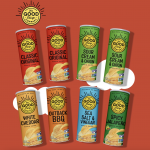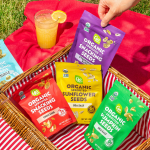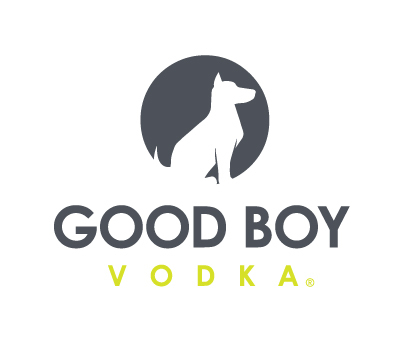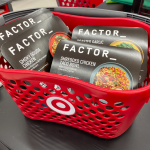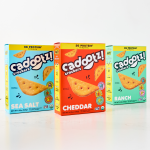The Checkout: Terviva Raises $54M, Announces Danone Partnership; NGA Rebrands
Welcome to The Checkout: an express lane for the weekly news you need to know, always 10 items or less.

Terviva Raises $54M, Launches Partnership With Danone
California-based food and agriculture company Terviva announced yesterday it has raised $54 million in equity funding to support the commercialization of its sustainable oil and plant protein ingredients derived from the pongamia tree.
The funding round included Astera Institute, Evans Properties, Trustbridge Partners and SoBe and Blue Buffalo co-founder Ron Edwards, among several others. The company also said it plans to close $24 million in equity and debt capital this quarter for a total of $78 million.
Terviva’s ingredients include a cooking oil as well as a highly soluble plant protein made from the beans of pongamia tree. Though the beans of the tree, which are native to Asia, are bitter and unpalatable in raw form, the company has developed a proprietary process that “de-bitters” the beans, allowing them to become a viable food ingredient, Chris Quevedo, Terviva commercialization team manager, said.
The company has spent the last five years working to scale the pongamia tree as an agricultural crop, working with farmers to plant the trees on idle agricultural land in the U.S. Not only can the trees flourish in the same growing climates as many other U.S.-grown crops, such as Florida oranges, but harvesting the beans can use existing, readily available equipment. Each tree also can capture 115 metric tons of carbon per acre over 30 years, according to the company.
The company plans to open a U.S.-based facility next year to produce pongamia-based foods.
Along with the new funding, Terviva also announced its first commercial partnership with Danone to develop new food products using its oil and plant protein. Terviva said it planned to “to develop products across their portfolio where the functionality of our food ingredients will deliver the most impact,” but couldn’t disclose specific food products that are in the works.
“Terviva’s pongamia-based food ingredients broaden access to healthy and environmentally sustainable foods that directly combat climate change,” founder and CEO Naveen Sikka said in a press release. “With our food ingredients, we can feed the planet and heal it at the same time.”
The company’s culinary oil, which has a nutty taste and golden color, is solid at refrigerated temperatures and liquid at room temperature. The fat is best suited for use in buttery spreads, mayonnaise, sauces, plant-based milks and creamers or dressings, the company said. Its protein features a nutty and sweet flavor profile, and can reduce the need for gums as well as reduce sedimentation in beverages. According to the company, the protein is versatile, working well in baked foods, plant-based meats, dairy alternatives, pasta, dips and spreads.
While currently operating as an ingredient supplier, with plans to partner with additional mission-aligned food and beverage companies, Quevedo said the Terviva is also considering a “limited consumer launch” of its culinary oil to establish awareness for the ingredient.
“In doing so, we intend to make a connection with consumers so that in collaborations with brands like Danone, they can expect nutritious and great tasting foods that are good for them and better for the planet in the products they know and love,” he said.

Bodega Latina Acquires Smart & Final
Bodega Latina Corporation, a subsidiary of Mexican retailer Grupo Comercial Chedraui (GCC), announced this week it has agreed to acquire grocery warehouse store Smart & Final from its private equity parent company Apollo Global Management for $620 million. The transaction is expected to close in the second or third quarter of 2021.
Smart & Final will operate as a separate unit within GCC, with “limited integration” expected as the retailer will retain its current management team to operate the business, including CEO David Hirz, GCC said.
California-based Smart & Final was acquired by Apollo in 2019 for $1.1 billion. The retailer services business and household customers, operating 250 stores in the U.S. and 16 stores in Northwestern Mexico. The company, which marked its 150th anniversary this year, generated $4.1 million in revenue in the fiscal year ending on January 3.
“The transaction is a testament to the strength of Smart & Final’s franchise, the quality of our store banners and the talent and expertise that support the business,” Hirz said in a press release. “Under the ownership of Grupo Comercial Chedraui and Bodega Latina, Smart & Final will benefit from their guidance given their recognized and established position in the food retail space while contributing our own best practices and experience. Together we will further accelerate our collective growth.”
The acquisition will continue GCC’s objective to grow in the U.S., according to a press release, growing its footprint and strategic capabilities while widening and diversifying its customer base.
“Smart & Final, with a unique go-to-market and operating strategy, is an attractive fit that is aligned with our business strategy in the U.S., utilizing differentiated formats to focus on growing, but underserved markets,” Carlos Smith, president and CEO of Bodega Latina, said. “With a brand that resonates with consumers, geographic fit in key markets, and a consistent record of profitable growth, Smart & Final will complement the platform we’ve built.”
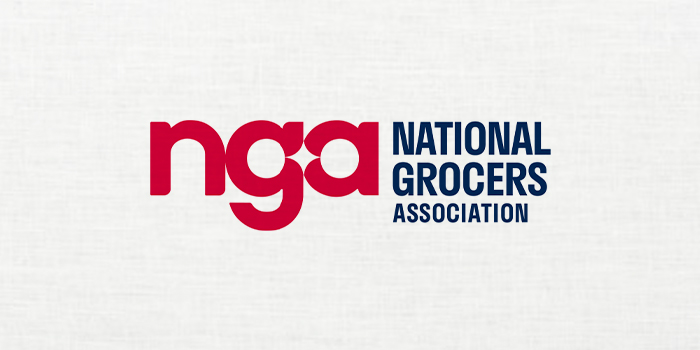
National Grocers Association Rebrands
Independent supermarket trade association The National Grocers Association (NGA) this week announced its first rebrand since the organization’s founding in 1982. As part of the rebrand, the Washington, D.C.-based association has also adopted a new tagline “At the Heart of the Community.”
NGA represents over 1,700 independent retail and wholesale grocers along with state grocers associations, manufacturers and suppliers. NGA president and CEO Greg Ferrara said in a press release the new contemporary logo, imagery and messaging are aimed at ensuring “independent, community-focused retailers and wholesalers have the opportunity to succeed and better serve consumers.”
“Independent community grocers and their wholesaler partners are critical to the strength and vitality of the people they serve,” he said. “By advocating for the growth and continuing innovation of these independent business leaders, we help bring choice, convenience and value to hard-working Americans, and ensure ongoing economic advancement and prosperity for our country.”

